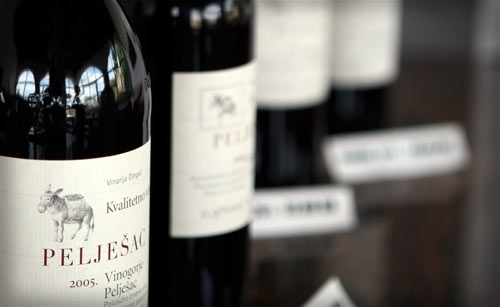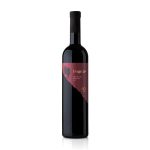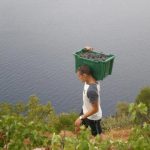The bankruptcy procedure of the agricultural cooperative Dingač in Potomje on Pelješac peninsula in southern Dalmatia may be the most unusual in Croatia
The bankruptcy of Dingač winery is an economic, social and political issue on Pelješac. For a full five years the winery has literally fought for survival. They attempted to develop their own brand of Plavac Mali wine with a label of a donkey, unsuccessfully, as Slobodna Dalmacija reported on December 20, 2016.
The bankruptcy procedure of the agricultural cooperative Dingač in Potomje on Pelješac peninsula in southern Dalmatia may be the most unusual in Croatia. This is not the classic bankruptcy story we have gotten accustomed to in the last twenty years in which debt has gone beyond the value of assets as the cooperative and winery besides the real estate have a million litres of quality Plavac Mali in stock.
By selling this quality wine the debts would be dissolved or at least most of them, while the rest of assets and production line would be intact and could begin anew. The Dingač winery is on the line after several years of agony. Grapes were bought but never paid to wine growers for years, who, to make things more absurd, co-own the winery as cooperative members. But, back to the million litres of Plavac Mali in full tanks waiting for a buyer.
The wine has entered the bankruptcy estate and will be sold in the proceedings. If not sold the regular way, which is hard to fathom as if there were interested buyers it wouldn’t have stayed in tanks for three years, the Plavac Mali will be sold at auction. It will surely be the first auction of a million litres of wine in Croatian history. Making things more interesting is the mortgage on wine supply in favour of the Croatian Postal Bank (HPB) based on loans taken by the Dingač winery. The total is around seven million kuna, to be settled through the sale of the wine.
If we assume the market price of a litre of wine is 20 kuna (the wine is not bottled and has been sitting in tanks for three years which may have affected quality), the supply is worth 20 million kuna.
Previous bankruptcy procedures have shown the creditors care most about their claims, so the Plavac Mali may be on sale at a price far below the market price, at seven kuna, just enough for HPB to cash out.
In such circumstances the Pelješac wine growers who claim 27 million kuna for grapes sold will be left dry, as their claims come after HPB and others. The bankruptcy manager of Dingač winery Ante Mrkonjić is hoping there will be no classic bankruptcy procedure of the sale of assets. The plan is to introduce a strategic partner and restructure the winery.
Will it be Badel who has already cooperated with the winery, Mrkonjić could not answer. He emphasized there is interest in continuing the operation of the winery, but cooperative members would have to forfeit part of their claims.
“Property and the wine supply are under mortgage. The creditors assembly will be held in February, with the largest problem being the claims of wine growers, who supplied the grapes,” said Mrkonjić, adding the bankruptcy plan needs to be established to continue production. “Badel has a strong chance, especially if their pre-bankruptcy settlement succeeds, but this remains to be seen after the assembly in February,” added Mrkonjić.
As far as wine supply goes, he feels the wine in the tanks should be bottled and sold not to lose the continuity with consumers, especially in the holidays.
Prior to this situation the winery underwent a pre-bankruptcy settlement in which the cooperative members forfeited 40 percent of their claims for grapes. The members agreed to this option hoping it would bring their winery out of trouble, but it sank deeper and deeper to bankruptcy.
The management failed at its job, opening new accounts and companies, turning income into salaries for employees and profit, while cooperative members, the state and banks got nothing, so bankruptcy was unavoidable.
Local council members in the Orebić County council initiated several times questions and discussion on the Dingač winery, but were always met with resistance from Croatian Democratic Union councilmen who defended the winery management and their restructuring plan.
“The bankruptcy of the cooperative and winery Dingač is an irreplaceable loss for Pelješac wine growers which creates a situation of hopelessness and insecurity, comparable to wartime years,” said wine grower Alenko Radović, who points out there are many private winemakers who buy grapes, but are not a replacement for the Dingač cooperative.
“Wine growers are not renewing their vineyards anymore as there is no profit anymore. There is no political power or will to help wine growers who don’t expect assistance through incentives or economic benefits, but simply a trustworthy cooperative as it used to be, to regain hope,” concluded Radović, who now plants walnuts instead of vines.
Dingač winery entered bankruptcy with a total debt of 42 million kuna, 27.1 by wine cooperative members, the state around 8.2 million, Jadranska Banka 950.000 kuna and then smaller creditors. If the classic bankruptcy and sale of assets are avoided, Dingač could continue business with a strategic partner.
This would be salvation for the fallen Pelješac wine growing, brought to the edge of survival due to issues with the Dingač winery.












